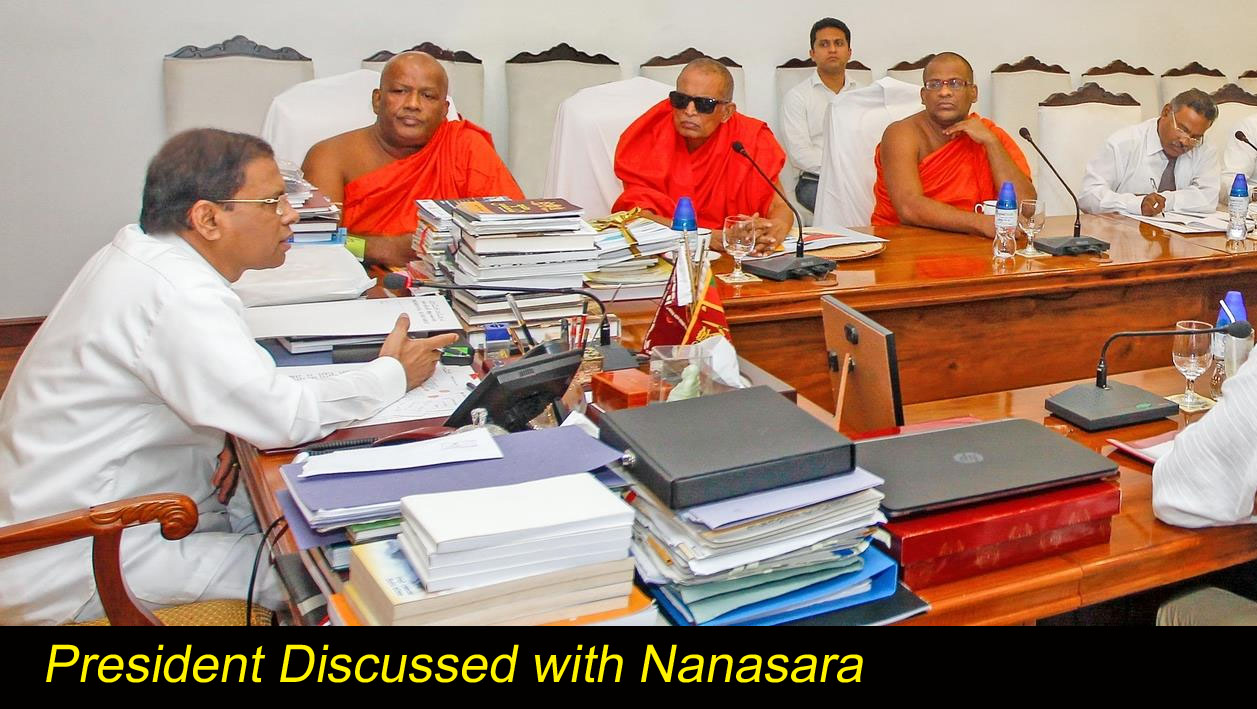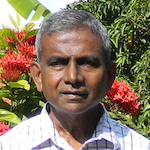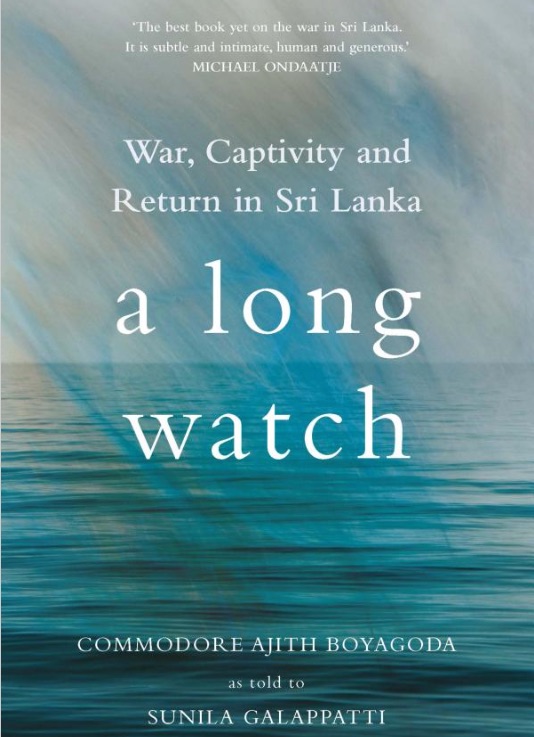-DMP-3.jpg)
Dr. A.C. Visvalingam-December 31, 2016,

The contents of the proposed new Constitution are yet to be finalised by Parliament. Nevertheless, many key safeguards will not be included in it because our politicians, barring a few exceptions, would find such provisions inimical to their all-consuming self-interest. It would take up too much space to go into the many desirable ingredients that are likely to be missing from the draft Constitution that is expected to emerge from Parliament sometime in 2017. So, we shall refer here to just two of them.
Selection of Candidates to Contest Elections - The Citizens’ Movement for Good Governance (CIMOGG) has repeatedly pointed out that the selection of candidates to contest elections has always been in the hands of a small oligarchy within each political party, which will sponsor only those candidates who will (a) pledge unquestioning loyalty to the leader of the oligarchy, (b) be able to press the claims of their family or party connections, (c) guarantee an abundant supply of money for election expenses, (d) have recourse to the services of bands of loyal supporters who would not hesitate to overstep legal and social boundaries during election campaigns, (e) not let their conscience get in the way when wasting or stealing public funds, and (f) possess slick eloquence in dealing with the public. On the other hand, a good academic or professional qualification, a fair acquaintance with the law and economics, a crime-free past, self-discipline and the willingness to commit more time to the needs of their elected office than to their own affairs are qualifications to which an oligarchy will not give much weight except in the case of a few individuals whose inputs would be essential to help confront well-informed critics.
Voters would be deluding themselves if they believe that it is they who choose and elect their representatives whereas the truth is that they would have to vote almost exclusively for candidates who have been pre-qualified, mostly for the wrong reasons, by the party oligarchies referred to above.
Instead of continuing as in the past, the new Constitution should insist on some basic criteria that would make it difficult for crooks and incompetents to enter the Legislature. Unfortunately, there is no significant prospect that this improvement will be realised because no political party would agree to adopt constitutional changes that undermine its own oligarchy.
Some years ago, CIMOGG recommended that the Elections Commission should get every candidate to fill in a standard form, covering two sides of an A4 sheet, with personal data, and have copies distributed (in the appropriate languages) to all the households in their electorates rather than encourage the squandering of vast resources on posters, stages, TV spots, environment-polluting sound-amplifying equipment, banners, traffic-blocking processions, food, drinks, gratuities and so on. The data sheets should contain at least (a) details of the electorate being contested, (b) full name of the candidate, (c) residential address, (d) contact details of the election office, (e) date of birth, (f) gender, (g) civil status, (h) period of residence in the electorate, (i) name and address of last school attended, (j) last institution of higher learning attended, (k) educational qualifications, (l) professional qualifications, (m) computer skills, (n) present occupation and workplace, (o) brief details of civic and social service activities, (p) brief details of three priorities for action within the electorate, (q) brief details of three priorities for action by Parliament, (r) the candidate’s tax file number, and (s) a declaration that the candidate has not been convicted by a court of law.
Candidates who make false claims in their data sheets would soon be exposed because at least a few voters in their electorates would be acquainted with their real background.
By going through the personal data sheets received by them, voters would be able very quickly to short-list the few candidates who are bound to stand out from the rest. It would now be up to the voters to cast their ballots for one of these short-listed candidates, without being influenced by uncritical attachment to party, race, religion, language, caste or other factors.
The Constitution should empower the Elections Commission to implement a scheme on the above lines and to work with the media to educate the public about the value of this approach to help Sri Lanka get decent, conscientious and competent persons to adorn our Legislature. However, as the majority of MPs in the present Parliament would be hard put to submit even passably satisfactory data sheets, they may be expected to veto the implementation of any new election methodology that would expose their poor bio-data to public scrutiny. Hence, this is one safeguard that we shall not see in the new Constitution.
Separation of Powers - Sovereignty is in the People and cannot be violated or transferred outright. Fundamental rights and the franchise are the two components of sovereignty that the People retain at all times whereas the powers of government would, for practical reasons, be delegated in conformity with the provisions of the Constitution.
In simplified language, the powers of government include (a) the making of laws by the Legislature, (b) the management of all State activities by the Executive, and (c) the exercise of judicial power by the Judiciary. These three functions have to be carried out in accordance with the Constitution and the subsidiary laws passed by the Legislature. Once the relevant laws are in place, the three arms of government – namely, the Legislature, the Executive and the Judiciary – should be obliged to carry out their functions independently with only such interaction as the Constitution stipulates. In other words, a good Constitution must separate the powers and functions of these three entities to the optimal extent so that conflicts of interest are minimised.
J.R.Jayewardene gave Sri Lanka a Constitution that sounds democratic but is, in fact, almost 100% dictatorial. His power over the Executive arm was absolute for all practical purposes by virtue of his position as the Executive President. He also controlled Parliament by his power to appoint or sack Ministers and, less directly, the Judiciary by his power to select, appoint and promote Judges of the Supreme Court. Instead of getting rid of this kind of concentration of power in one person, PM Ranil Wickremesinghe, who is the moving spirit behind the drafting of the new Constitution has, on many occasions, kept insisting that Parliament must be supreme (even above the People?) in terms of the Constitution, presumably so that a future PM would be able to exercise all the powers that Jayewardene exercised as Executive President. The only privilege that would be given up would be Presidential immunity which would not matter to any PM who controls all three arms of government with the aid of a Constitution that subverts the concept of a comprehensive separation of powers.
Parliament should concentrate on passing laws and deciding national priorities. It must get the Executive to implement whatever program of work has been approved but must not itself interfere in executive decision-making. It should tell the Executive "what" it wants but not give directions as to "how" the Executive’s tasks are to be carried out. Parliament shall set up, within the Executive, whatever machinery is required to carry out all tasks and also appoint independent entities to deal with all matters relating to procurement contracts, progress and expenditure monitoring, quality assurance and conformity with Parliament’s requirements. It would be incumbent on the Executive to keep the Legislature regularly informed of progress on all tasks assigned to it. Parliament should have subject-specific sub-committees which shall be empowered to summon senior personnel from the Executive to appear before them and furnish whatever clarifications are sought.
As for the Judiciary, over the years, there have been numerous allegations/revelations in the media about the manner in which Prime Ministers and Executive Presidents have appointed members to the superior grades of the Judiciary and also pressurized them to give judgments that would be favourable to the regime in power. Mr Nagananda Kodituwakku (NK), Attorney-at-Law and courageous socio-political activist, has recently filed complaints with the Permanent Commission to Investigate Allegations of Bribery or Corruption (CIABOC) against five of our Chief Justices accusing them of giving judgments in favour of the Executive President, the Prime Minister or the government of the day. Whether he will be able to penetrate the strong defensive wall that will confront him remains to be seen. Whatever be the outcome of NK’s endeavours, it is crystal clear that the Judiciary is highly vulnerable and should be insulated from political pressures and allowed to function in a much more autonomous and professional manner than over the past seven decades. In particular, Parliament should, in no circumstances, be allowed to exercise judicial functions considering that the background and qualifications required to become an MP, even a good one, are very different from those that are needed to be a judge.
The higher politicians rise within the Legislature the keener they are to exercise overarching power and control over everybody and everything. Even a nominal concession in the direction of the separation of powers would not be something they would favour.
Consequently, this safeguard will also be unlikely to be included in the new Constitution.
(The writer is president of CIMOGG, (Citizens Movement for Good Governance)
email: acvisva@gmail.com)

 (Lanka-e-News -31.Dec.2016, 2.40PM) It is a well and widely known fact that racist and infamous Galagoda Aththe Gnanassara the robed monk is day in and day out making vitriolic and inflammatory speeches against the Muslims while it is the duty of a responsible government, specially one which preaches good governance to ensure action is taken against such conduct , before it leads to a national holocaust . Yet , to the consternation of all peace loving and law abiding people of the country , a video tape of his hate speech had been released to the public by the media unit itself of the president of the country. Mujubur Rahman M.P. has therefore made a written request to the president to conduct an investigation into this .A copy of the letter sent by the M.P. is appended …
(Lanka-e-News -31.Dec.2016, 2.40PM) It is a well and widely known fact that racist and infamous Galagoda Aththe Gnanassara the robed monk is day in and day out making vitriolic and inflammatory speeches against the Muslims while it is the duty of a responsible government, specially one which preaches good governance to ensure action is taken against such conduct , before it leads to a national holocaust . Yet , to the consternation of all peace loving and law abiding people of the country , a video tape of his hate speech had been released to the public by the media unit itself of the president of the country. Mujubur Rahman M.P. has therefore made a written request to the president to conduct an investigation into this .A copy of the letter sent by the M.P. is appended …
-DMP-3.jpg)






-hgw.jpg)





-tas-1.jpg)